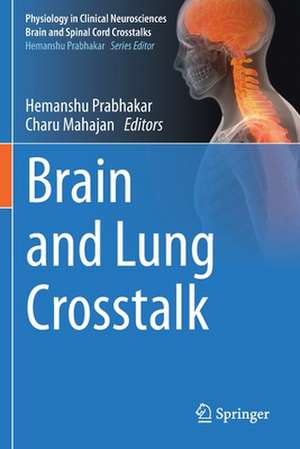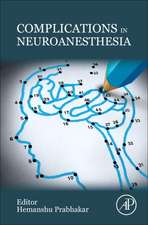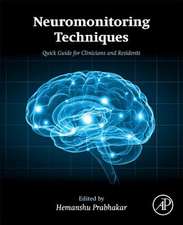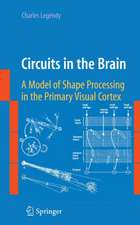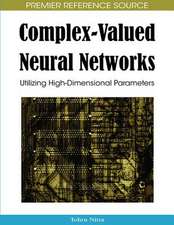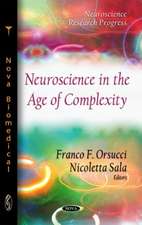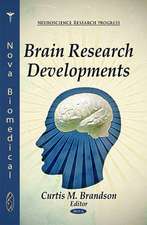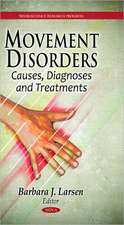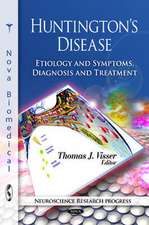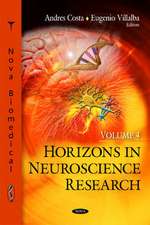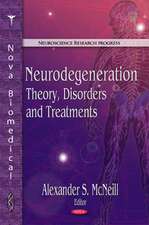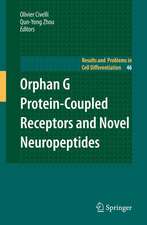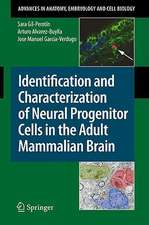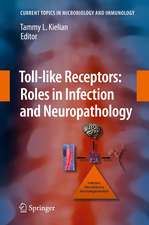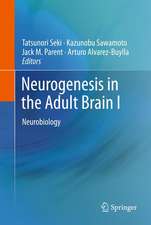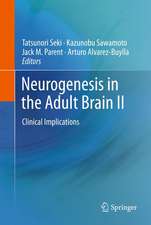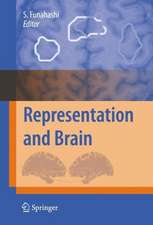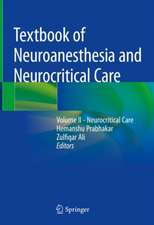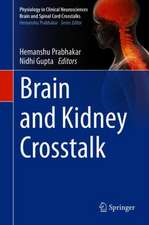Brain and Lung Crosstalk: Physiology in Clinical Neurosciences – Brain and Spinal Cord Crosstalks
Editat de Hemanshu Prabhakar, Charu Mahajanen Limba Engleză Paperback – 12 mai 2021
This book explains the lesser-known crosstalks between acutely or chronically affected brain and lung, describing the pathophysiology of the lung following brain injury and discussing in detail the conflicts between the brain and lungs in relation to the tidal volumes, positive end-expiratory pressures, arterial carbon dioxide and oxygen levels, recruitment maneuvers and positioning, as well as potential therapeutic targets.
| Toate formatele și edițiile | Preț | Express |
|---|---|---|
| Paperback (1) | 631.72 lei 6-8 săpt. | |
| Springer Nature Singapore – 12 mai 2021 | 631.72 lei 6-8 săpt. | |
| Hardback (1) | 637.93 lei 6-8 săpt. | |
| Springer Nature Singapore – 12 mai 2020 | 637.93 lei 6-8 săpt. |
Preț: 631.72 lei
Preț vechi: 743.20 lei
-15% Nou
Puncte Express: 948
Preț estimativ în valută:
120.90€ • 125.75$ • 99.81£
120.90€ • 125.75$ • 99.81£
Carte tipărită la comandă
Livrare economică 14-28 aprilie
Preluare comenzi: 021 569.72.76
Specificații
ISBN-13: 9789811523472
ISBN-10: 9811523479
Ilustrații: XIII, 103 p. 27 illus., 26 illus. in color.
Dimensiuni: 155 x 235 mm
Greutate: 0.18 kg
Ediția:1st ed. 2020
Editura: Springer Nature Singapore
Colecția Springer
Seria Physiology in Clinical Neurosciences – Brain and Spinal Cord Crosstalks
Locul publicării:Singapore, Singapore
ISBN-10: 9811523479
Ilustrații: XIII, 103 p. 27 illus., 26 illus. in color.
Dimensiuni: 155 x 235 mm
Greutate: 0.18 kg
Ediția:1st ed. 2020
Editura: Springer Nature Singapore
Colecția Springer
Seria Physiology in Clinical Neurosciences – Brain and Spinal Cord Crosstalks
Locul publicării:Singapore, Singapore
Cuprins
Chapter 1. Neurophysiology and Respiratory system.- Chapter 2. Normal physiology of Respiratory System.- Chapter 3. Brain – Lung crosstalk.
Notă biografică
Dr. Hemanshu Prabhakar, MBBS, holds an MD from the IGMC Nagpur, and a PhD from All India Institute of Medical Sciences. He is currently a Professor at the Department of Neuroanaesthesiology and Critical Care at the All India Institute of Medical Sciences, New Delhi. Dr. Prabhakar has research experience spanning over 20 years, and his extensive work in the field of neuroanesthesia and neurocritical care has been published in various national and international journals. He is also the author of a number of books.
Dr. Charu Mahajan, MBBS MDDM, is currently an Associate Professor at the Department of Neuroanaesthesiology and Critical Care. She has over a decade of research experience and has received various awards. She has published numerous books and journal papers, and is also a reviewer for several prestigious journals. She is a member of various national and international scientific bodies.
Dr. Charu Mahajan, MBBS MDDM, is currently an Associate Professor at the Department of Neuroanaesthesiology and Critical Care. She has over a decade of research experience and has received various awards. She has published numerous books and journal papers, and is also a reviewer for several prestigious journals. She is a member of various national and international scientific bodies.
Textul de pe ultima copertă
The central nervous system, which includes the brain and spinal cord, has a high metabolic demand. The physiology of the brain is such that it is easily affected by alterations in other systems, which in turn can compromise cerebral blood flow and oxygenation. Together the brain and spinal cord control the automatic function of our body systems. While other systems of body controls individual functions, central nervous system at the same time does many different functions, especially, controlling the function of other systems. This interaction between the brain and other systems is important when it comes to understanding how injuries to the brain can, at times, produce complications in remote organs or systems of the body, such as the lungs.
This book explains the lesser-known crosstalks between acutely or chronically affected brain and lung, describing the pathophysiology of the lung following brain injury and discussing in detail the conflicts between the brain and lungs in relation to the tidal volumes, positive end-expiratory pressures, arterial carbon dioxide and oxygen levels, recruitment maneuvers and positioning, as well as potential therapeutic targets.
This book explains the lesser-known crosstalks between acutely or chronically affected brain and lung, describing the pathophysiology of the lung following brain injury and discussing in detail the conflicts between the brain and lungs in relation to the tidal volumes, positive end-expiratory pressures, arterial carbon dioxide and oxygen levels, recruitment maneuvers and positioning, as well as potential therapeutic targets.
Caracteristici
Comprehensively discusses the brain and lung crosstalks Focuses on the effects of injured brain on physiology and functioning of other systems in the body Describes in detail about the latest research regarding possible therapeutic targets
